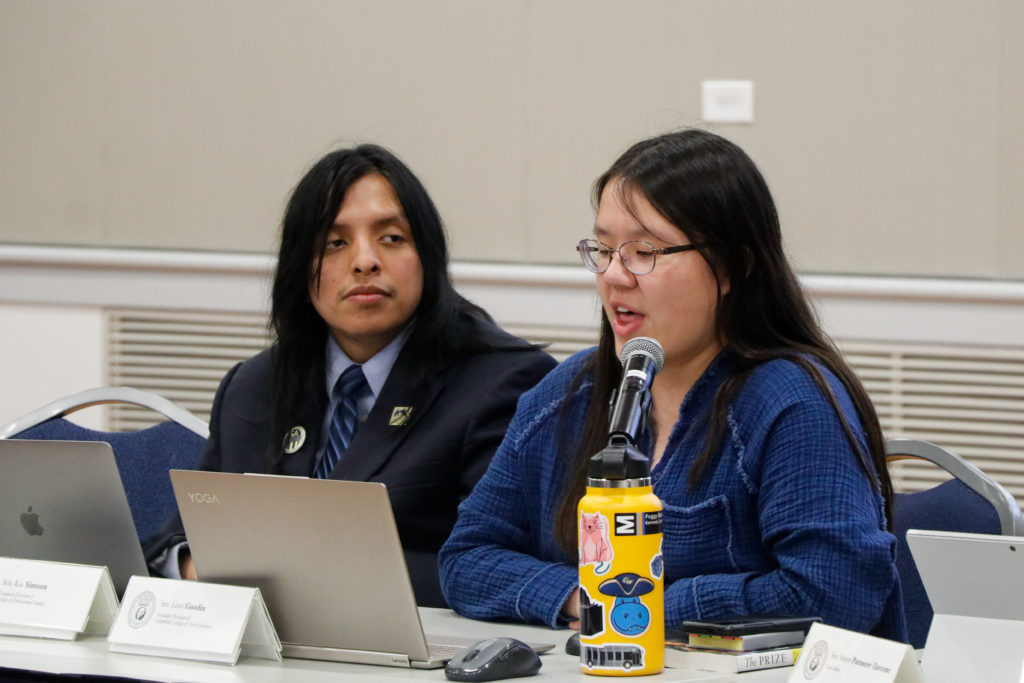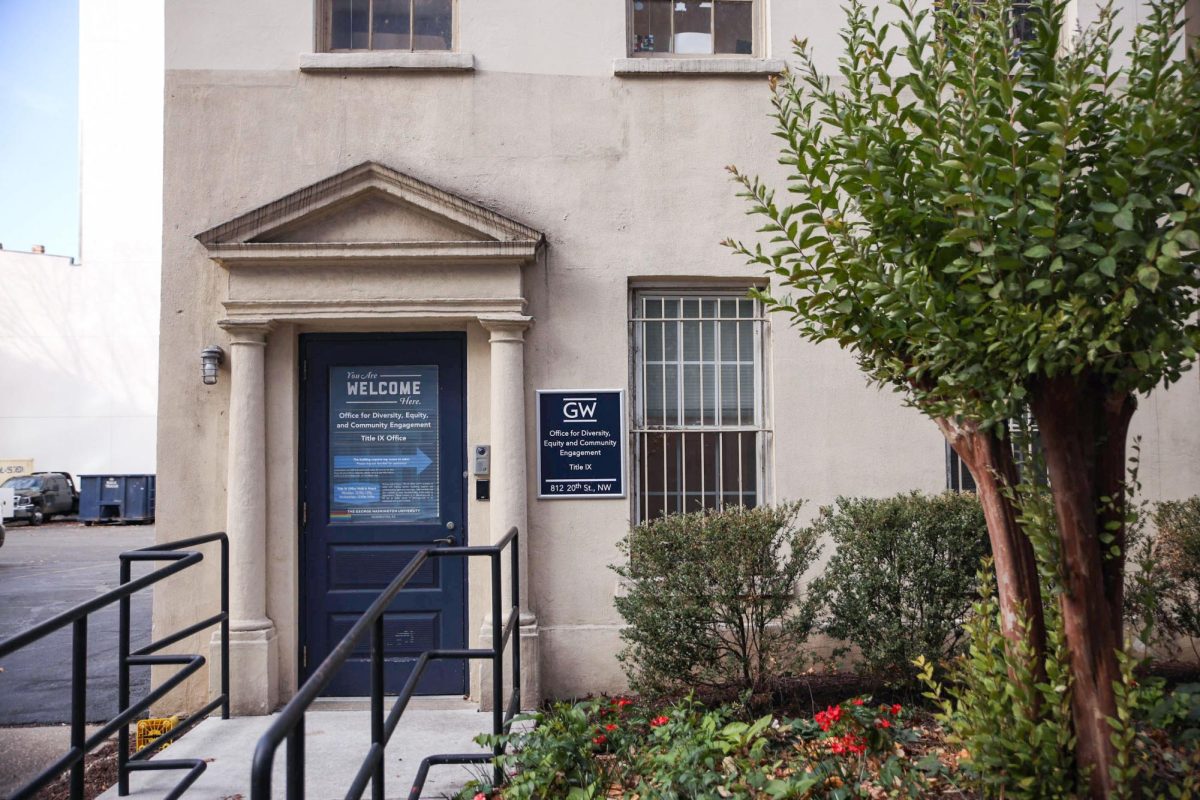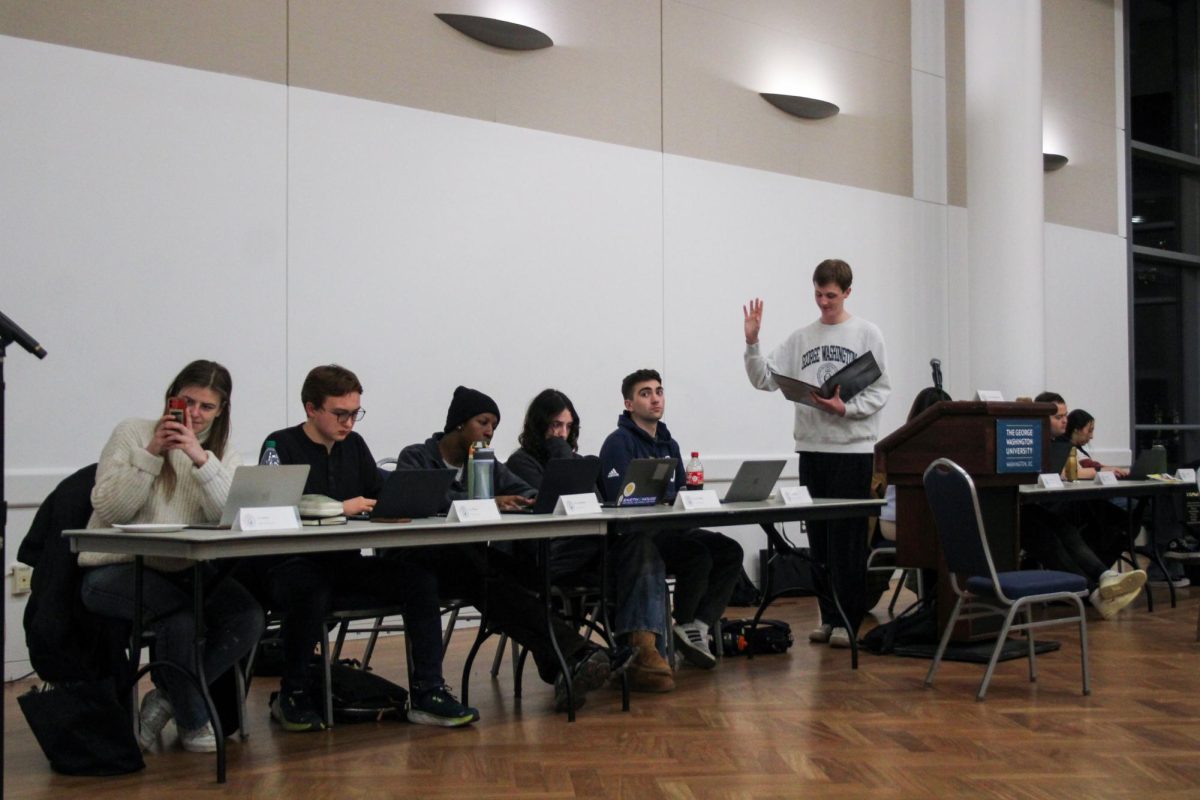The Student Association Senate unanimously approved a $1.31 million budget for the upcoming school year Monday.
The Fiscal Year 2024 Annual Budgeting Act set a budget ceiling of about $1.31 million for the upcoming fiscal year, similar to last year’s $1.3 million budget. The act sets aside $531,750 in funding for the academic year’s general allocations process – the process student organizations use to build their budgets – and about $149,000 for co-sponsorships, which student organizations can apply to specific events.
SA Sen. Linsi Goodin, CCAS-G, the chair of the finance committee, gave a report on the preliminary requests received during the general allocations process for the fall 2023 semester.
”We had a rabid debate over the process of a multi-day process and we greatly appreciate all the assistance that was provided during this time,” Goodin said.
Goodin said the total requested amount from student organizations was $1,931,307, more than five times the amount of general allocation funds available. The act budgeted about $241,000 for fall semester general allocations.
Goodin said the finance committee has approved preliminary general allocations to student organizations. She said the committee sent student organizations an email with their preliminary budget Monday morning. Goodin said the window for student organizations to appeal budget decisions will open Thursday and close April 7.
The budget sets aside $350,724 for graduate student umbrella organizations, like GW Law’s Student Bar Association, and $48,325 for the SA’s operating budget, which pays for the SA’s food, drink and costs associated with holding meetings, about 3.7 percent of the SA’s total expected funds. According to SA bylaws, the SA’s operating budget may not exceed more than 5 percent of the SA’s total funds.
Aaron Howell, the assistant director of Student Rights and Responsibilities, said the office has drafted proposals for changes to the Code of Academic Integrity, including the addition of a warning process in academic dishonesty cases. Howell said the process would clarify accused students’ rights.
Howell said the revisions will also change the definition of intentional plagiarism in an effort to ensure the office speaks with instructors about how to include artificial intelligence resources, like ChatGPT, under the definition of plagiarism.
“By adding these changes, we’re not taking the stance of completely, 100 percent prohibiting the use of artificial intelligence agencies,” he said. “In our conversations with the community, we’ve talked with instructors about how to incorporate ChatGPT and other artificial intelligence resources into their pedagogical approach.”
He said the current code references intentional plagiarism as deliberately using any “person’s” ideas as one’s own, whereas the revised code will move away from the term “person,” and instead will be defined as using words and ideas without proper attribution.
Christy Anthony, the director of Student Rights and Responsibilities, said that while the SA Senate does not vote on the proposed changes to the Code of Student Conduct, she was seeking feedback on the potential changes.
She said general feedback from students has been “very positive” for their proposed changes to exceptions of prohibited behaviors, like exceptions to physical abuse charges in cases of self-defense. She said if a student is alleged to have committed physical abuse, but it occurred in the context of self defense, the student could be exempt from the physical-abuse allegation.
Student Court Chief Justice Devin Eager said there will be five court vacancies to fill after four of the current justices, including himself, graduate in May and another graduates in the summer.
“It is imperative that the legislative branch and the executive branch work together to seat five new justices to the bench,” Eager said.
Two anonymous public comments criticized SA President Christian Zidouemba, who the Joint Elections Commission found violated election bylaws by collecting signatures for his petition under the guise he was collecting signatures for other candidates.
Sabrina Causley, the president of GW’s American Foundation for Suicide Prevention chapter, said in a presentation to the senate that the group is working to change the language people use when discussing suicide. She said rather than using terms like “committed suicide” or describing attempts as failed or successful, AFSP wants to shift the language towards using “died by suicide, ended their life or suicide attempts.”
“It’s important that we understand the perspective of a suicidal person,” Causley said. “We want to understand that a crisis point has been reached in their life. They’re desperate to escape, and their thinking has become limited.”
SA Vice President Yan Xu said in his report that he is working to schedule a meeting with Campus Living and Residential Education to present a joint report from the Residence Hall Association and himself on the conditions and maintenance of residence halls.
Xu also said he heard from the diversity team and the Faculty Senate that the provost’s office requires all professors to receive Title IX and anti-discrimination training.
The next regularly scheduled SA Senate meeting will be held April 10 at 8:30 p.m. in the University Student Center’s Continental Ballroom.











